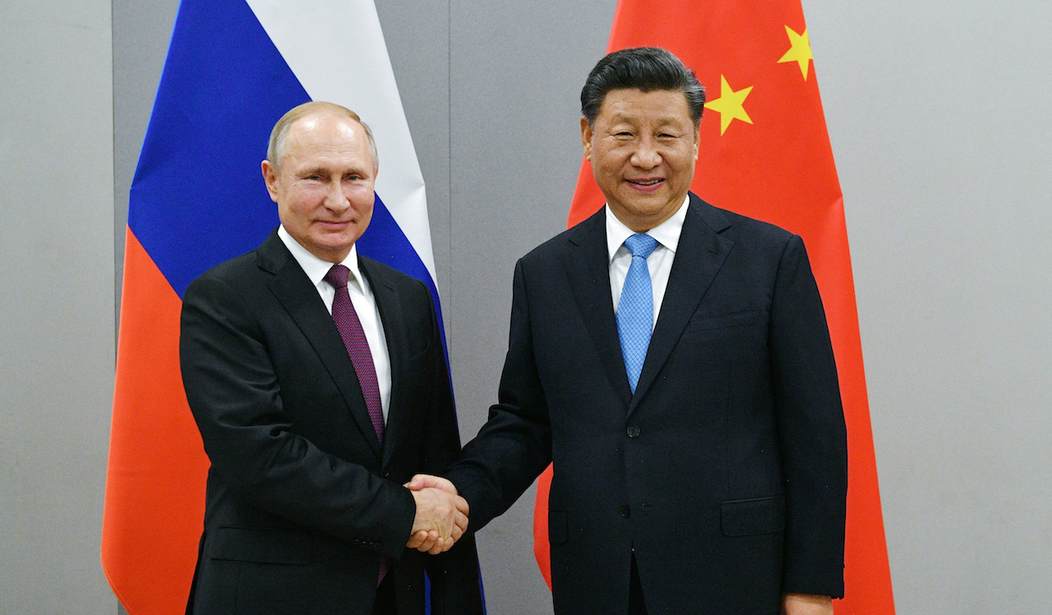Whenever China is mentioned in any discussion of geopolitics, it's common to point out one reason that China won't get too aggressive with the United States: We depend on each other economically. It's a fair point; China and the United States are each other's major trade partners. Nations that do business tend not to go to war. However, there is an exception for every rule, and a threat assessment released by the House Committee on Homeland Security presents some troubling information on China (pdf).
Here are some highlights:
- Between 2000 and 2023, there have been 224 reported incidents of Chinese espionage directed at the United States.
- About 80% of economic espionage prosecutions allege conduct that would benefit the Chinese state, and there is at least some nexus to China in around 60% of all trade secret theft cases.
- The FBI opens new cases to counter the PRC's intelligence operations roughly every 12 hours.
- The PRC's theft of U.S. IP is in the billions - amounting to about $4,000 to $6,000 per American family of four after paying taxes.
- The PRC is a top perpetrator of transnational repression to silence dissidents critical of the authoritarian regime in the world.
It doesn't stop there. China is also gathering military intelligence. Some examples from the report:
January 8, 2024: Petty Officer Wenheng Zhao, of California, was sentenced to 27 months in prison for transmitting sensitive military information to a PRC agent in exchange for bribery payments.
January 31, 2024: Four PRC nationals—Baoxia LIU, Yiu Wa YUNG, Yongxin LI, and Yanlai ZHONG—were indicted in the District of Columbia for their involvement in a conspiracy to unlawfully export and smuggle U.S.-origin electronic components to Iran over several years. The defendants allegedly utilized front companies in the PRC to funnel dual-use items, including those used for military applications, to Iranian entities affiliated with the Islamic Revolutionary Guard Corps.
May 24, 2024: Former CIA officer, Alexander Yuk Ching Ma, of Honolulu, pled guilty to conducting espionage on behalf of the Chinese government through providing national defense information to the PRC’s Shanghai State Security Bureau. On September 11, he was sentenced to 10 years in prison for conspiracy to commit espionage
The Harris/Biden administration, we must note, has its own connections to China:
See Related: Major Kamala Harris Supporter Has Deep Ties to China, Met With Chinese Communist Officials
China's acts detailed in this report are not the acts of trusted trade partners. But then, China is in many ways incomprehensible to Westerners. A look at China's history is illustrative; a look at Chinese society is even more so. Chinese subjects - these people are not citizens in any sense that we would recognize the word - accept a degree of collectivism that Westerners in general and Americans in particular would never tolerate. And now, in recent years, Chairman Xi has amassed more personal power than anyone since Mao.
In Mandarin, one of the names for China is Zhongguo, or "Middle Kingdom." This was, about 3,000 years ago, meant to represent China as the center of the world, an island of civilization surrounded by barbarians. (At the time that wasn't an unfair assessment.) It also carries the implication of China being the land between heaven and earth - and there appears to still be this attitude among the leaders of the Chinese Communist Party today.
China is also becoming more bellicose in the Western Pacific. They are still looking enviously over the water at Taiwan - although it's not clear if they can take the island.
See Related: Is China Making a Move? China Conducts Large-Scale Naval Exercises Near Taiwan, Taipei Defiant
We should note, though, that China's territorial ambitions could well bring it into conflict with America's best ally in the North Pacific - Japan.
China is not a friend of the United States. Yes, the Middle Kingdom has some existential problems; its economy is a house of cards, and its population is going over the edge of a demographic precipice. But they still have considerable military might, they are working to expand their naval reach, and yes, they are gathering intelligence on their primary geopolitical rival - the United States. China is a land of great momentum, not great ideas, and it seems to be difficult for them to change course - even when their national survival may depend on it. Their economic and demographic problems may cause Xi and his underlings to step up their efforts. And if history has taught us anything, it is that powerful men who are growing desperate will attempt dangerous things.
Needless to say, this isn't a time for the United States to have weak leadership in Washington.














Join the conversation as a VIP Member